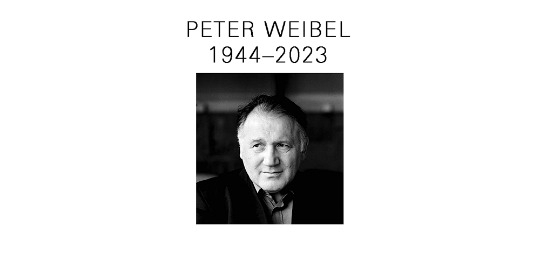MMCA to pay tribute to the late Peter Weibel in Seoul
By Park YunaPublished : March 3, 2023 - 17:06

Conceptual artist Peter Weibel, who had pioneered media art as a theorist and curator since the 1960s, died on Wednesday. He was 78.
The National Museum of Modern and Contemporary Art, Korea, which is hosting an ongoing exhibition by Weibel, announced Friday it will set up a space dedicated to the artist, allowing visitors to pay tribute to him until May 14.
Weibel’s exhibition, “respectively, Peter Weibel. Art as an Act of Cognition,” that opened on Feb. 3 became the artist's last exhibition while alive, according to the MMCA.
The large-scale retrospective presents more than 70 of his works through 10 themes -- artistic action, performance, photography, language analysis, writing, poetry, video, expanded cinema and computer-based installation.
“Weibel donated two of his works to the museum in an expression of gratitude to the exhibition at MMCA and its successful opening,” the museum said in a press release for the opening of the exhibition, which was jointly curated with the ZKM Center for Art and Media Karlsruhe in Germany. Weibel had been director at the museum since 1999.
Weibel created artworks that speak out fearlessly on the subject of politics and social matters of the late 20th and 21st century and radically challenged conventional notions of art.
Born in Odesa, Ukraine, in 1944, Weibel studied literature, medicine, logic, philosophy, and film in Paris and Vienna. He died in Karlsruhe, Germany due to a "short serious illness," the ZKM museum said.



















![[Today’s K-pop] Treasure to publish magazine for debut anniversary](http://res.heraldm.com/phpwas/restmb_idxmake.php?idx=642&simg=/content/image/2024/07/26/20240726050551_0.jpg&u=)